Ecosystems
-
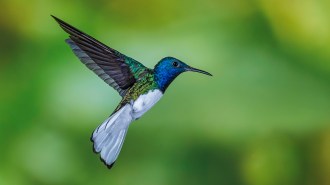 Animals
AnimalsFemale hummingbirds may sport flashy feathers to avoid being harassed
Some female white-necked jacobin hummingbirds boast bright blue plumage that’s similar to males. The colors may help females blend in to avoid attacks.
-
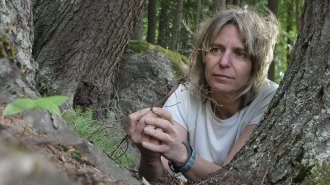 Science & Society
Science & SocietyAn ecologist’s new book gets at the root of trees’ social lives
In ‘Finding the Mother Tree,’ Suzanne Simard recounts how she discovered hidden networks in forests.
-
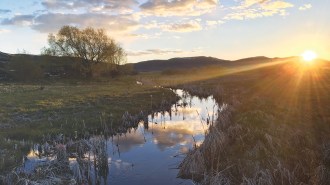 Ecosystems
EcosystemsAs ‘phantom rivers’ roar, birds and bats change their hunting habits
A massive experiment in the Idaho wilderness shows it’s not just human-made noises that impact ecosystems. Natural noises can too.
By Nikk Ogasa -
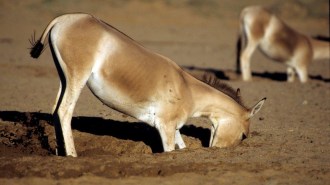 Ecosystems
EcosystemsWild donkeys and horses engineer water holes that help other species
Dozens of animals and even some plants in the American Southwest take advantage of water-filled holes dug by these nonnative equids.
-
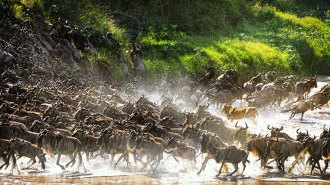 Life
LifeOnly 3 percent of Earth’s land hasn’t been marred by humans
A sweeping survey of terrestrial ecosystems finds that vanishingly little land houses all the animals it used to. Species reintroductions could help.
-
 Ecosystems
EcosystemsWildfires launch microbes into the air. How big of a health risk is that?
How does wildfire smoke move bacteria and fungi — and what harm might they do to people when they get there?
By Megan Sever -
 Oceans
OceansCorals’ hidden genetic diversity corresponds to distinct lifestyles
Observation and DNA analysis expose identical reef corals as distinct species with unique ecologies, suggesting much greater coral biodiversity.
-
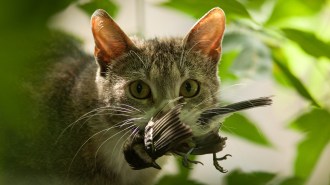 Life
LifeThese are the 5 costliest invasive species, causing billions in damages
Invasive species have cost the global economy at least $1 trillion since 1970 and $162.7 billion in 2017 alone. The annual cost is increasing.
-
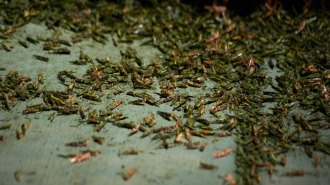 Animals
AnimalsWeather radar shows 30 metric tons of grasshoppers swarmed Las Vegas one night
Everything’s glitzier in Las Vegas. The most intensely lit U.S. city shows the impact of artificial light on insects on a megascale.
By Susan Milius -
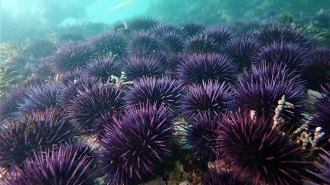 Ecosystems
EcosystemsHow kelp forests off California are responding to an urchin takeover
A pair of studies reports 95 percent loss of kelp forests along the northern coast while sea otters are helping maintain surviving kelp farther south.
-
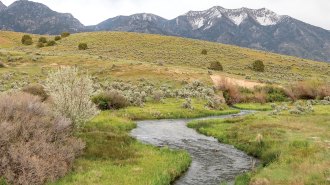 Ecosystems
EcosystemsSimple hand-built structures can help streams survive wildfires and drought
Building simple structures with sticks and stones — and inviting in dam-building beavers — can keep water where it’s needed to fight drought and wildfires.
-
 Animals
AnimalsDim lighting may raise the risk of a West Nile virus exposure
Dimly lit nights increased risk of West Nile virus exposure in chickens. Artificial light proved a better predictor of risk than population or paving.